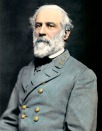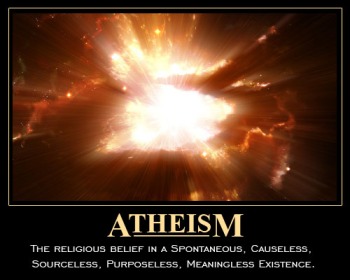 I am often tempted by the desire to have just one more piece of chocolate. I might also speak of temptation, as my inability to resist a delicious looking dessert. However, in such matters as these, modern man has trivialized the word “temptation” in our language and culture by referring to it as something that is naughty but not serious. The Bible always speaks of temptation as a very serious matter because it is the wish to oppose the moral law of God in act or attitude.
I am often tempted by the desire to have just one more piece of chocolate. I might also speak of temptation, as my inability to resist a delicious looking dessert. However, in such matters as these, modern man has trivialized the word “temptation” in our language and culture by referring to it as something that is naughty but not serious. The Bible always speaks of temptation as a very serious matter because it is the wish to oppose the moral law of God in act or attitude.
An extra piece of chocolate pie may really be a problem for me (sin of gluttony). Everyone who loves to watch the Food Channel, however, may see it only as a small temptation (or peccadillo) and certainly not the want to rebel against God. Richard Sibbes makes an important point when he writes, “Satan gives Adam an apple, and takes away Paradise. Therefore in all temptations let us consider not what he offers, but what we shall lose.” Temptation offers the illusion of happiness but its consequences yield only torment.
We all are tempted, but we should never treat temptation in a light or frivolous manner. Temptation is serious! Jesus told his disciples, “Watch and pray that you may not enter into temptation. The spirit indeed is willing, but the flesh is weak.” (Matthew 26:41) Once we yield to temptation, it grows in power. Another reason that makes this difficult is that we don’t want to discourage temptation completely. We want to play around its edges as a small boy plays with fire. We deceive ourselves into believing that we can play carelessly in the flames and not be burned.
Paul writes, “No temptation has seized you except what is common to man. And God is faithful; He will not let you be tempted beyond what you can bear. But when you are tempted, He will also provide a way out so that you can stand up under it.” (1 Corinthians 10:13) If you honestly and firmly decide to do your best to avoid temptation and pray with all your heart for God’s deliverance, He is faithful to give you the means to stand against Satan’s clever devices.
If you are a Christian, the Holy Spirit of God will help you resist the temptation to sin. However, if you are a Christian who does not daily strengthen himself in the disciplines of Christ – you will be weak when temptation comes upon you. “Let no one say when he is tempted, ‘I am being tempted by God,’ for God cannot be tempted with evil, and he himself tempts no one. But each person is tempted when he is lured and enticed by his own desire. Then desire when it has conceived gives birth to sin, and sin when it is fully grown brings forth death.” (James 1:12-16 ESV)

Filed under: Bible, Christianity, Evil, God, Holiness, Samuel A. Cain, Samuel at Gilgal, sin | Tagged: Richard Sibbes | 4 Comments »



































 Sinclair B. Ferguson
Sinclair B. Ferguson Christopher White writes:
Christopher White writes: We must set before our congregations the scriptural distinctions between a true believer and a false believer. This type of preaching never harms the true child of God. The only thing that stands to be harmed by an inspection is the counterfeit. According to Al Martin:
We must set before our congregations the scriptural distinctions between a true believer and a false believer. This type of preaching never harms the true child of God. The only thing that stands to be harmed by an inspection is the counterfeit. According to Al Martin: John Piper:
John Piper: Robert E. Lee
Robert E. Lee Faith assures the soul that what God has promised in His Word, He will provide and carry out. William Guthrie writes:
Faith assures the soul that what God has promised in His Word, He will provide and carry out. William Guthrie writes: desires in order. Faith makes it desire nothing but what God hath allowed in His Word and it will be nothing short of this. Again, it orders our zeal, so that it is not blind and preposterous: where faith rules it orders humility, so that the soul does not say in a sullen fit, “Lord, depart from me for I am a sinful man.” It orders sorrow for sin neither to be too little nor too great. It is faith’s work to make the soul sorrow heartily before God: on the other hand, it makes us guard against anxious sorrow. Then it orders hope that the soul may wait patiently for the answer or accomplishment of prayer. Thus, it is faith’s work to order all things within the soul, and put all things in a composed temper. So commanding is the grace of faith in a soul where it is, that it will let nothing be out of order.
desires in order. Faith makes it desire nothing but what God hath allowed in His Word and it will be nothing short of this. Again, it orders our zeal, so that it is not blind and preposterous: where faith rules it orders humility, so that the soul does not say in a sullen fit, “Lord, depart from me for I am a sinful man.” It orders sorrow for sin neither to be too little nor too great. It is faith’s work to make the soul sorrow heartily before God: on the other hand, it makes us guard against anxious sorrow. Then it orders hope that the soul may wait patiently for the answer or accomplishment of prayer. Thus, it is faith’s work to order all things within the soul, and put all things in a composed temper. So commanding is the grace of faith in a soul where it is, that it will let nothing be out of order. Joseph Hall
Joseph Hall President George Washington
President George Washington Many try to set up a kind of self-repentance and justify themselves in the sight of God. They say they have repented, or tried to repent. They say they have prayed, or tried to pray and still God has not saved them. Then they begin to blame God. However, they know this is wrong.
Many try to set up a kind of self-repentance and justify themselves in the sight of God. They say they have repented, or tried to repent. They say they have prayed, or tried to pray and still God has not saved them. Then they begin to blame God. However, they know this is wrong.  Jeremiah Burroughs
Jeremiah Burroughs Before Christ promised the Holy Spirit, He gave a new commandment, “A new commandment I give to you, that you love one another: just as I have loved you, you also are to love one another. By this all people will know that you are my disciples, if you have love for one another.” (John 13:34-35 ESV) Andrew Murray writes:
Before Christ promised the Holy Spirit, He gave a new commandment, “A new commandment I give to you, that you love one another: just as I have loved you, you also are to love one another. By this all people will know that you are my disciples, if you have love for one another.” (John 13:34-35 ESV) Andrew Murray writes: In the pride of his face, the wicked does not seek him; all his thoughts are, “There is no God.” (Psalm 10:4
In the pride of his face, the wicked does not seek him; all his thoughts are, “There is no God.” (Psalm 10:4  Jerry Bridges
Jerry Bridges





















